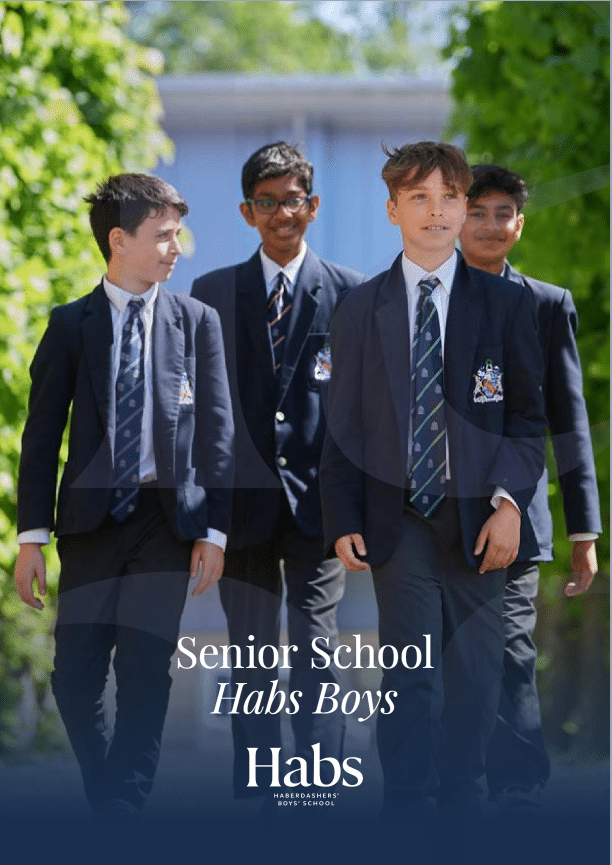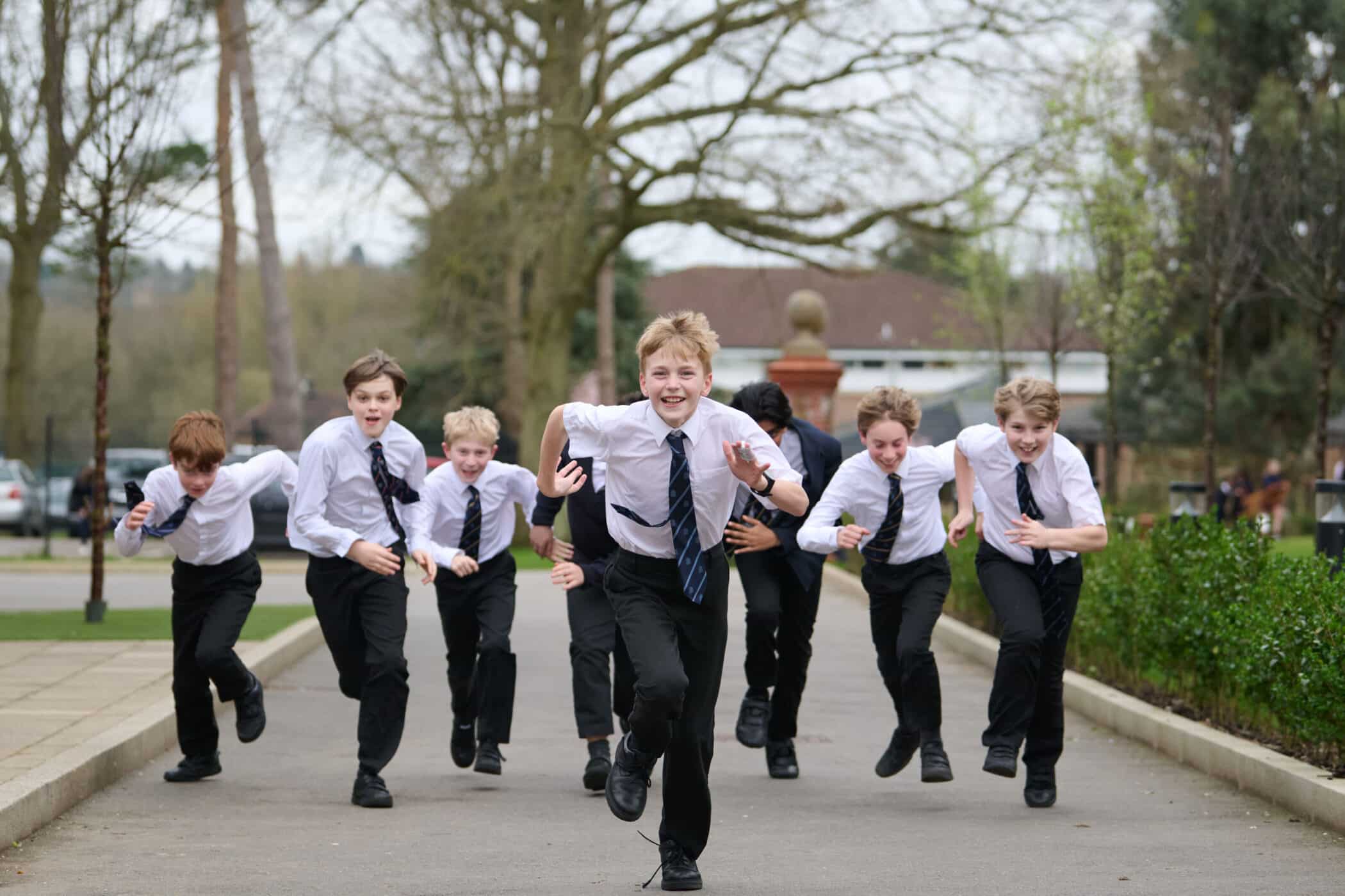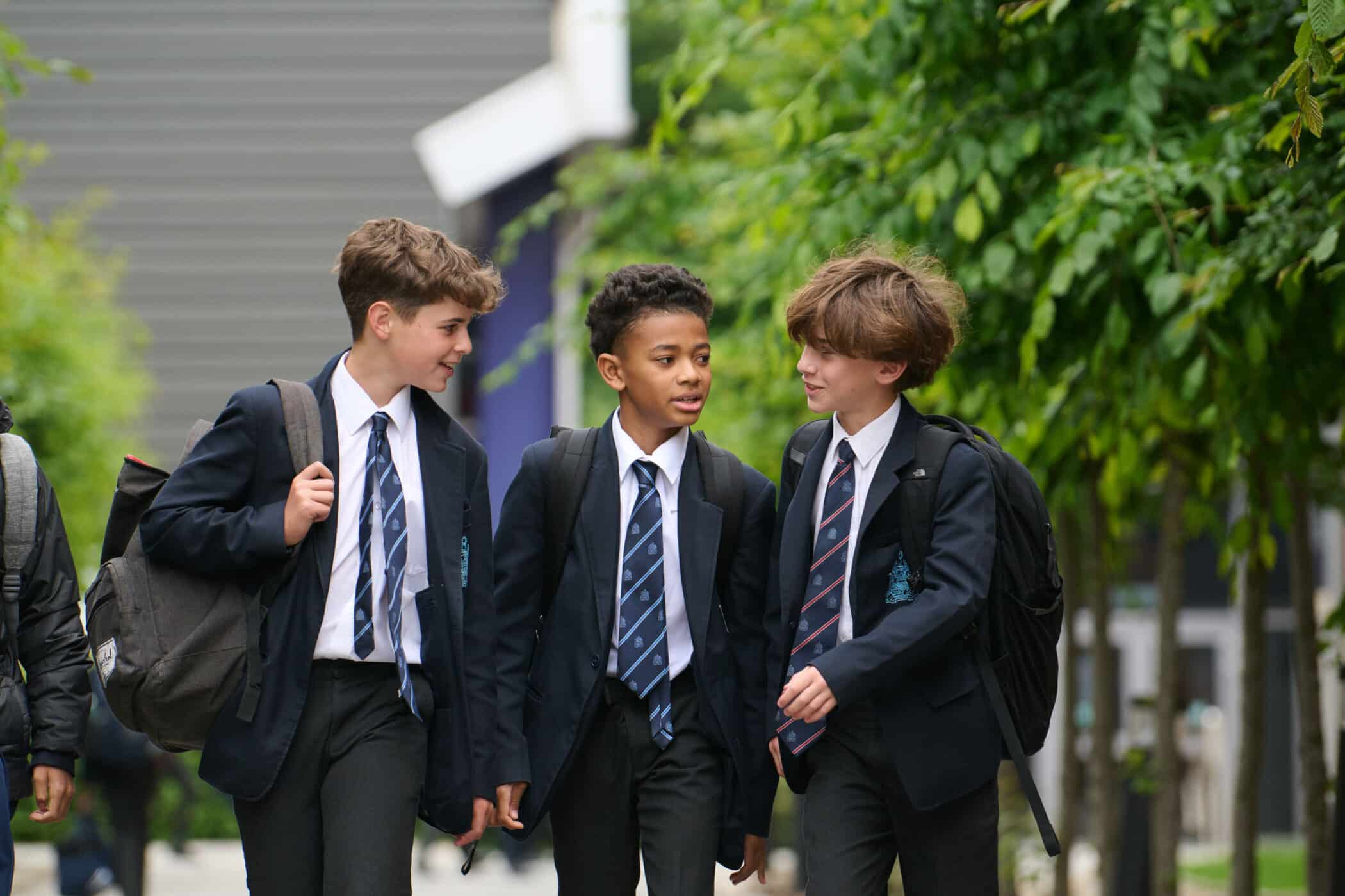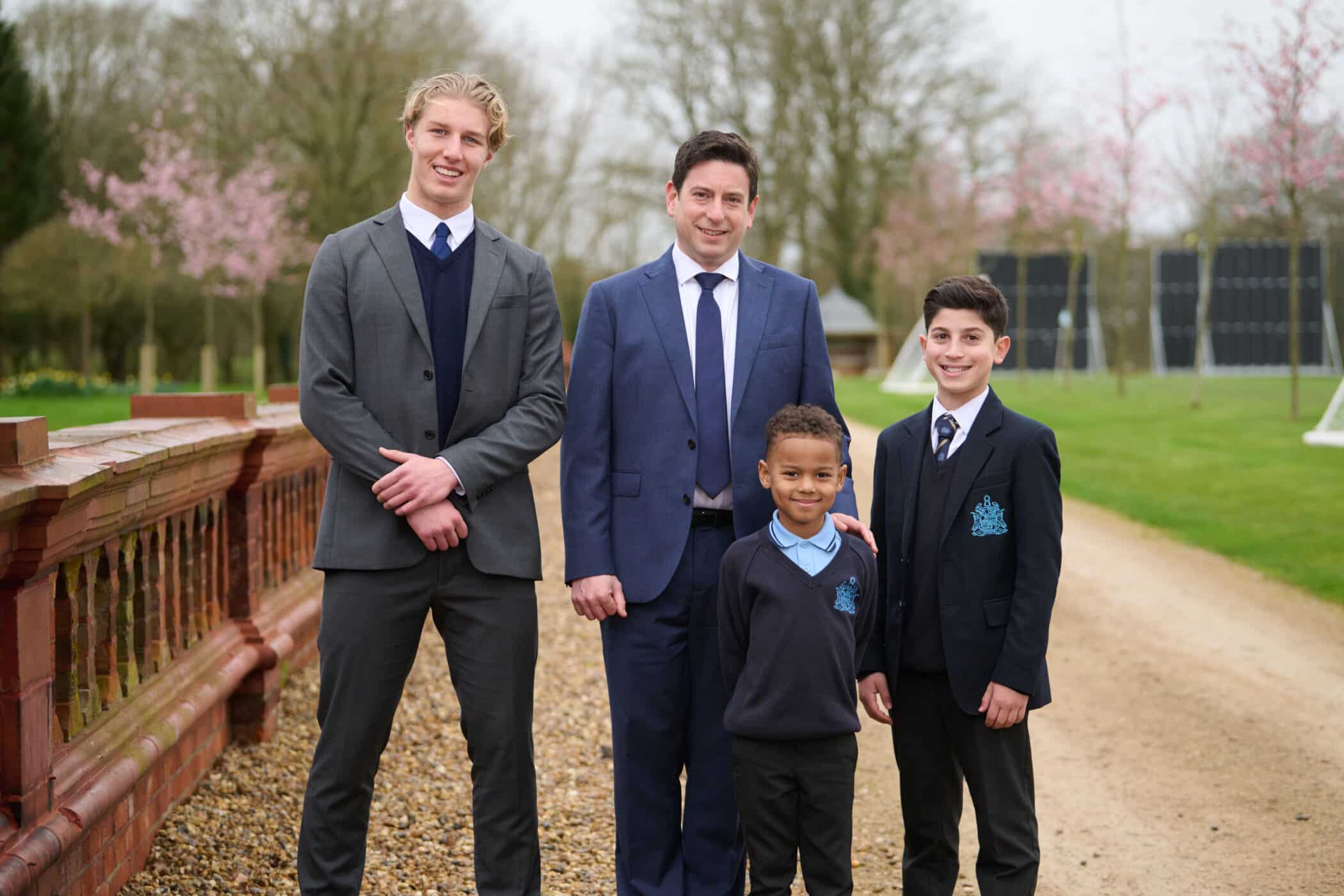Our Senior School is ambitious and challenging, which also makes it exciting and varied.
Teachers are experts in their fields, stretching and challenging students while sharing their passion for their subjects.
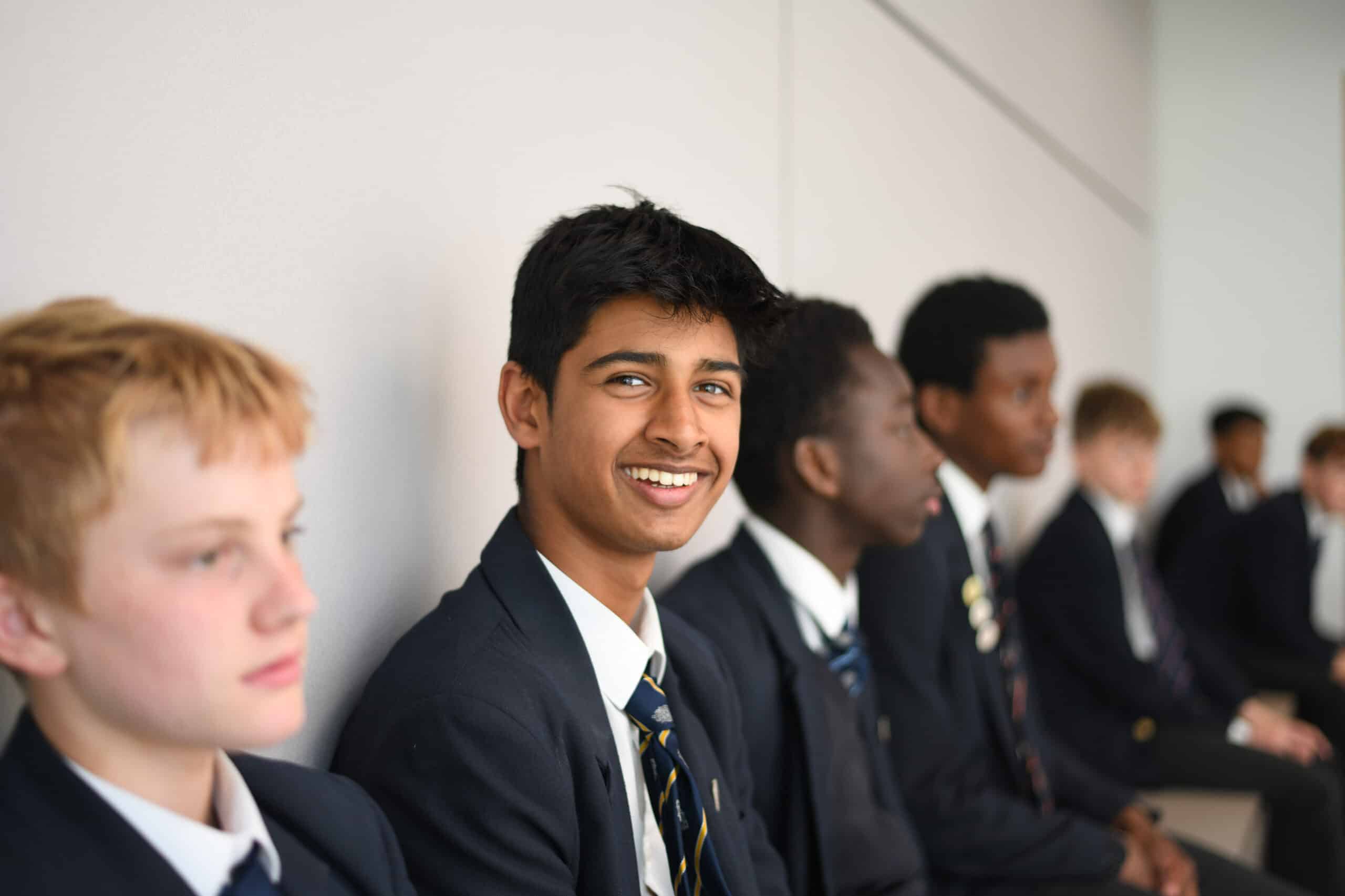
How students learn
Our students enjoy learning actively and independently, with plenty of practical and problem-solving tasks involving fun, discussion and debate. In every subject area, students are encouraged to take risks, investigate and explore. All helping them to become lifelong learners.
We expect students to throw themselves into all areas equally. They become linguists, scientists, mathematicians, athletes, musicians, performers, technologists, historians, artists and true polymaths.
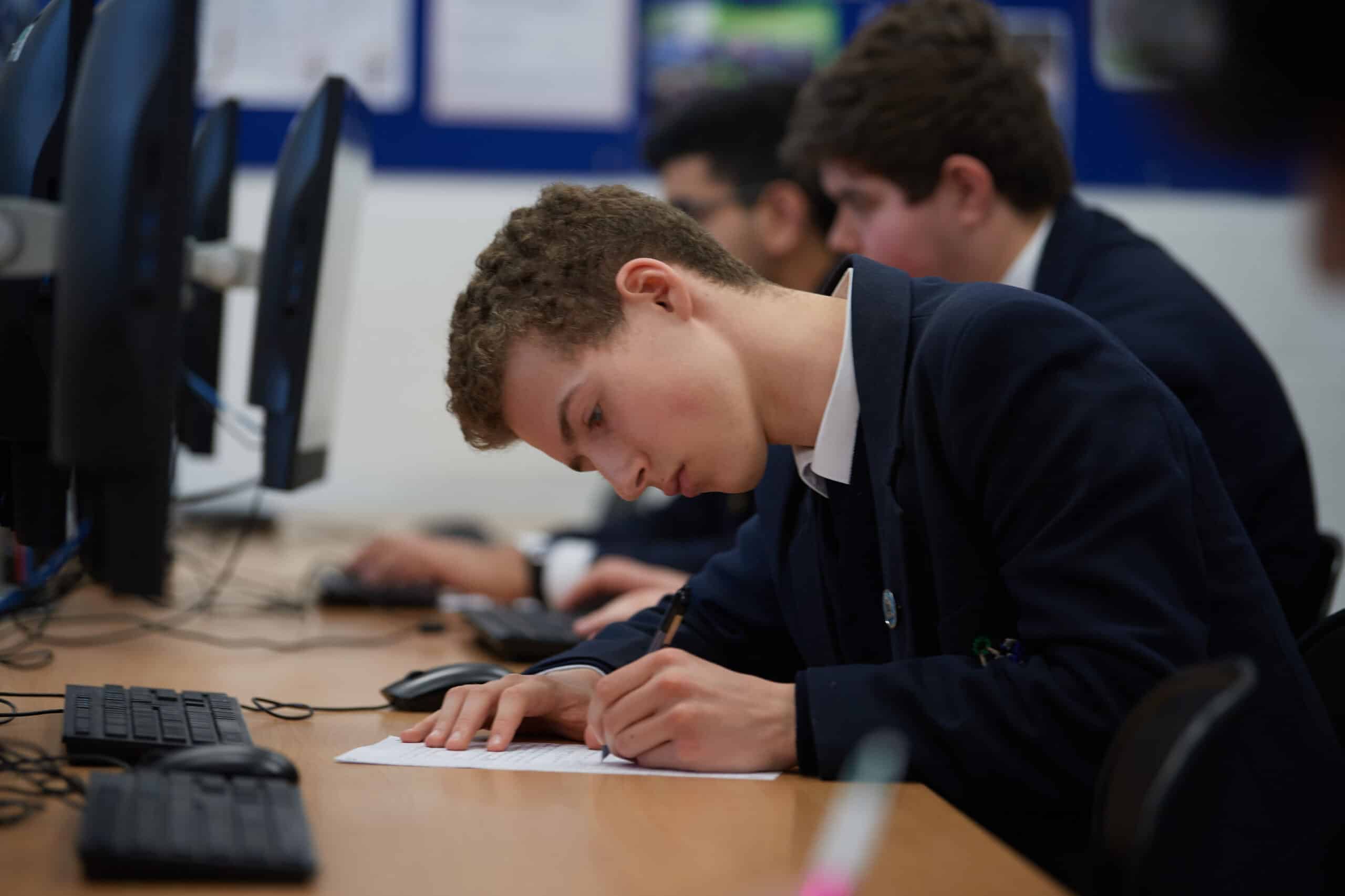
The curriculum
As an independent school, we are not required to follow the National Curriculum. In practice. Yet all our departments stay up to date on the latest National Curriculum developments. As a result, our curriculum is ambitious and innovative, valued equally at national and international level.
This makes our curriculum broad and balanced, with all subjects given equal importance. In the first three years of Senior School, students follow a set but flexible curriculum. This includes:
- Studying French, Spanish and German on a carousel in Year 7 (and then choosing two languages to continue in Year 8)
- Greater choice in the higher senior years for personalising each student’s curriculum to suit their needs and interests
- Space for up to four optional GCSE subjects
- Thinking ahead to A Level, students study three or four subjects, as well as the Habs Diploma
Throughout all this, our curriculum is designed to provoke students’ curiosity and develop their passions, preparing them for the next stage and their future.
Plenty of extras
- Students compete in national and international competitions such as Maths and Science olympiads
- We invite external speakers to talk to our students, offering new perspectives while furthering their knowledge and understanding on subject matters
- Students can set up and take part in academic societies, further deepening their passion for the subject
- Throughout their time at Habs, students will be asked to take part in an extended research project, whether it be Family History in Year 7 or an academic paper in Sixth Form

Transitions throughout school life
There are several transition points for students during their time at Habs Boys. They are likely to move from Prep into Lower School (Years 7 and 8), Middle School is Years 9, 10 and 11 and then potentially Sixth Form.
At each stage, including choices for GCSEs and A Levels, students receive bespoke, one-to-one guidance. Moving up to Sixth Form is an especially important moment. Around the mid-point of senior school, staff begin gently helping students to think about their interests, their ideas about university and any career ambitions they are considering.
The intention is always that pupils move into Sixth Form here at Habs. Yet we know this will not be the right choice for a very small number of students. Closely monitoring each student’s academic progress and emotional wellbeing allows us to form partnerships with parents, so we can all come to the right decision for each student.


